Leading Grocery Store Franchises in 2025: Exploring Investment Opportunities and Brand Power


Franchise Opportunities By Industry
Franchise Opportunities By Location
Franchise 101
By Investment Level
Franchise Consultant
White Paper
Playbook


In 2025, top grocery store franchises have become pivotal in shaping the retail landscape, offering consumers a blend of convenience, variety, and innovation worldwide. These franchises have adapted to changing consumer preferences, incorporating technology and sustainability into their operations. Their success is marked by expansive growth, diverse product offerings, and a strong emphasis on customer satisfaction, setting new standards in the grocery industry.
Investing in a grocery franchise doesn't always require a hefty sum. The franchises in this category are distinguished by their affordability, making them accessible to a broader range of entrepreneurs. These brands offer a promising entry point into the grocery industry without compromising on quality or potential for growth.

Founded in: 1983
Franchising since: 1983
Franchise Units: 367
Initial investment range: $55,875 - $501,750
Initial Franchise Fee: $15,000 - $150,000
Royalty: 3.5%
Gateway Newstands offers a distinctive franchise opportunity in the convenience retail sector, leveraging over 30 years of experience to provide a proven business model. Specializing in franchise sales, management, and real estate, Gateway Newstands has established a robust presence with 150 stores across major urban markets in Canada, including Toronto, Calgary, and Vancouver. The franchise caters to the daily convenience needs of millions, located in premium transit locations, office towers, shopping malls, university campuses, condominium buildings, and urban neighborhoods.
A unique aspect of Gateway Newstands is its access to exclusive real estate opportunities not readily available to the mass market, coupled with comprehensive support in real estate, store design, operations, merchandising, marketing, and digital media. This support ensures franchisees are well-equipped to meet ever-changing consumer demands, offering a product mix that includes grocery, beverages, snacks, prepared foods, everyday essentials, lottery, and tobacco.
With a low initial investment and custom store designs, Gateway Newstands stands out by providing professional guidance through the entire store opening process, from operations to merchandising setup and support. This hands-on approach and focus on high-traffic urban locations distinguish Gateway Newstands from other franchises in the convenience industry, making it an attractive option for entrepreneurs looking to enter the retail market with a trusted partner.
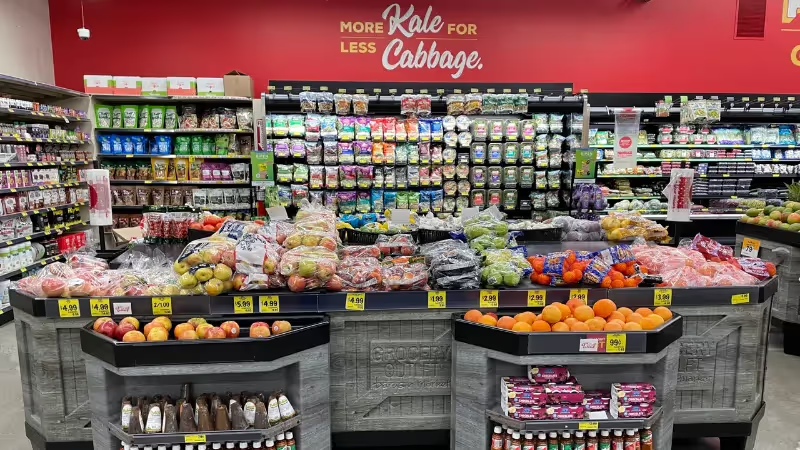
Founded in: 1946
Franchising since: 1973
Franchise Units: 460+
Initial investment range: $150,000-$250,000
Initial Franchise Fee: N/A
The Grocery Outlet franchise presents an ideal opportunity in the discount grocery sector, combining low investment costs with high operational autonomy. Since its inception in 1973, Grocery Outlet has grown significantly, partnering with retail entrepreneurs to operate stores across various locations.
A standout feature of the Grocery Outlet franchise is the considerable autonomy granted to Independent Operators in key areas such as hiring, merchandising, and marketing. This level of local decision-making is rare in the franchise industry, allowing operators to tailor their stores to their communities' specific needs and preferences. This flexibility enhances customers' shopping experience and allows franchisees to respond quickly to market changes and opportunities.
Grocery Outlet's business model is designed for individuals with a strong entrepreneurial spirit and a passion for community engagement. The franchise offers comprehensive support and training, ensuring that Independent Operators are well-equipped to succeed in the competitive grocery retail market. With a focus on discount pricing and quality customer service, Grocery Outlet stands out as a leading franchise opportunity for those looking to impact their local retail landscape significantly.
In the ever-evolving grocery sector, some franchises stand out due to their unwavering consumer demand. These brands have tapped into the pulse of the market, offering products and services that consistently attract customers. Their proven track record of success makes them a compelling choice for investors looking to capitalize on the grocery industry's dynamic nature.
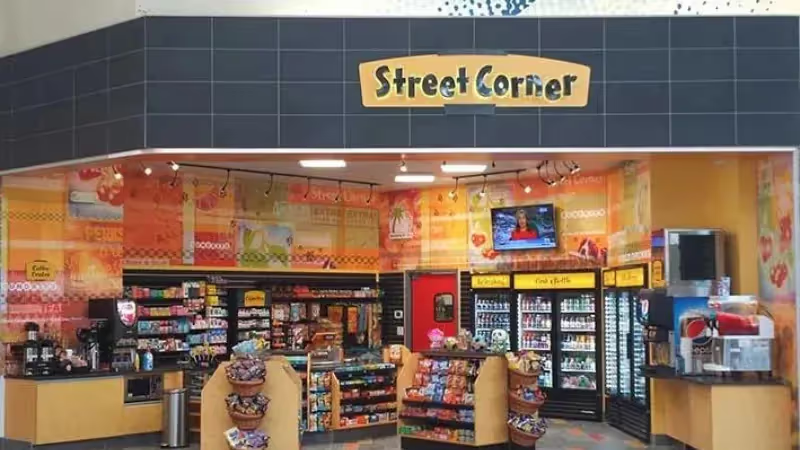
Founded in: 1988
Franchising since: 1995
Franchise Units: 40
Initial investment range: $122,300 - $657,300
Initial Franchise Fee: $30,000
Royalty: 5%
The Street Corner franchise offers a versatile and adaptive approach to the convenience store industry. Through its unique store models—gas stations, kiosks, urban superettes, and mall stores—it caters to a wide range of consumer needs.
A distinguishing feature of Street Corner is its Urban Market concept, which bridges the gap between large-scale grocery stores and traditional convenience stores. This concept is tailored for dense population centers and offers a fresh, inviting look that attracts a diverse customer base, including professionals, students, and families. The Urban Markets provide standard convenience store offerings and feature chef-curated fresh food services with high-quality ingredients, made-to-order pizzas, sandwiches, and salads.
Moreover, Street Corner is pioneering in integrating technology into its operations, being the first in the nation to introduce "Order at the Pump" technology at select fuel station locations. This innovative approach enhances customer convenience by allowing fuel station customers to order freshly prepared food products and essentials directly from the pump, showcasing Street Corner's commitment to redefining the convenience store experience.
Establishing a strong presence in the competitive grocery industry can be a game-changer. Franchises in this category have achieved remarkable brand recognition, ensuring they are top-of-mind for consumers. Their well-established reputation not only draws in customers but also provides franchisees with a solid foundation for success.
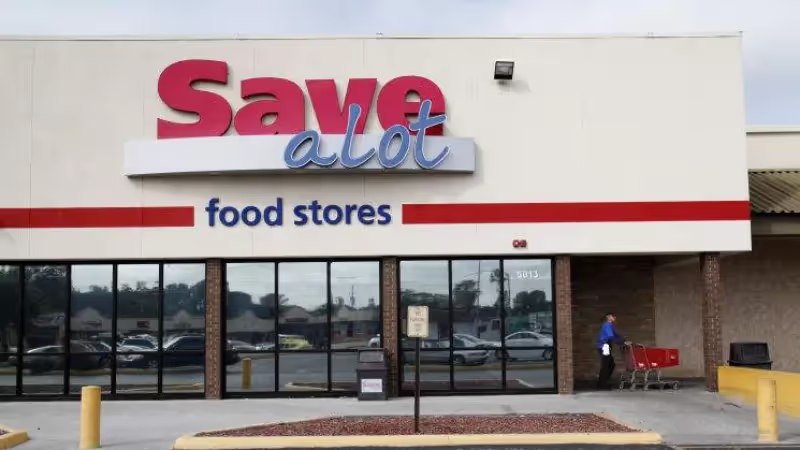
Founded in: 1977
Franchising since: 1978
Franchise Units: 1150
Initial investment range: $750,000 - $1,500,000
Initial Franchise Fee: N/A
The Save A Lot franchise offers a compelling opportunity in the grocery store industry, operating over 1,150 stores across the USA. This franchise distinguishes itself with smaller, more efficient shops, an effective discount system, and exclusive brands, catering to a diverse customer base seeking value and convenience.
Franchisees benefit from comprehensive support, including real estate selection and negotiations, optimized product assortment, dedicated distribution channels, and ongoing operational support from onboarding to accounting services. A unique aspect of Save A Lot's franchise model is its focus on community-centric locations, requiring a population of 20,000 in urban and 10,000 in rural areas, ensuring franchises are strategically placed to meet market demand.
Save A Lot's business model is designed for individuals with prior business management experience, preferably in grocery or retail, highlighting a commitment to operational excellence and customer satisfaction.
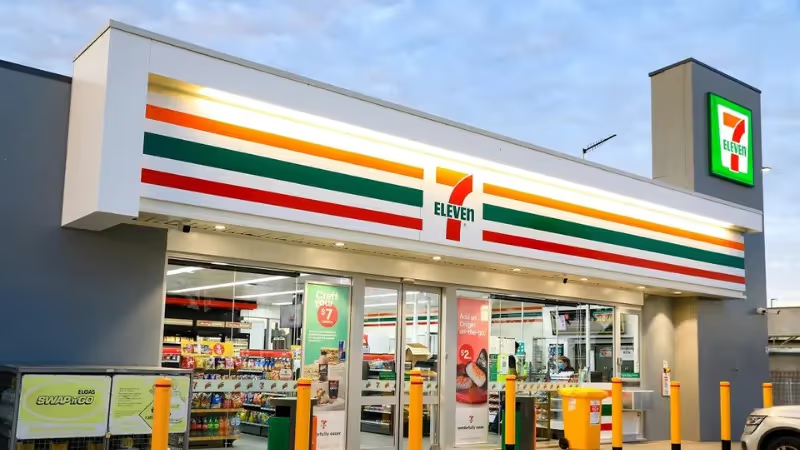
Founded in: 1927
Franchising since: 1964
Franchise Units: 83,779
Initial investment range: $139,150 - $1,384,000
Initial Franchise Fee: $0 - $1,000,000
Royalty: Varies
The 7-Eleven franchise offers a robust opportunity for entrepreneurs looking to engage with a global leader in convenience retailing. With a strong brand presence and over 68,000 stores worldwide, 7-Eleven has become a go-to destination for customers seeking convenience, quality, and variety. The franchise model is designed to provide comprehensive support to franchisees, including training programs, operational support, and marketing strategies to ensure their success.
A unique aspect of the 7-Eleven franchise is its innovative approach to meeting consumer needs, such as introducing 24/7 operations, self-service checkouts, and a mobile app for enhanced customer convenience. These initiatives have set 7-Eleven apart in the convenience store industry by continuously adapting to consumer trends and incorporating technology to streamline operations and improve the customer experience.
Franchisees benefit from 7-Eleven's strong supply chain, proprietary products, and established brand loyalty, making it an attractive investment for those looking to enter the retail market with a proven business model. The company's commitment to franchisee success is evident through its ongoing support and investment in technology and consumer insights, positioning 7-Eleven as a leader in the convenience retail sector.
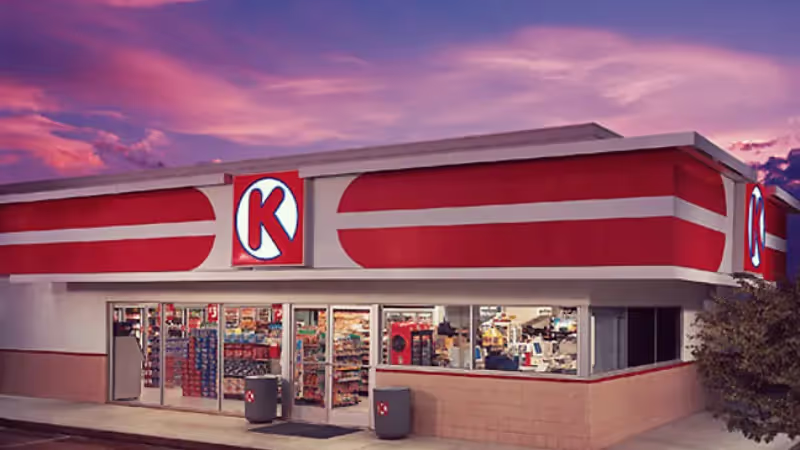
Founded in: 1951
Franchising since: 1995
Franchise Units: 12,199
Initial investment range: $935,500 - $6,951,500
Initial Franchise Fee: $25,000
Royalty: 3.5%+
The Circle K franchise offers a dynamic opportunity in the convenience store and gas station industry, building on a legacy over 60 years since its inception in 1951. With a global presence and a strong brand identity, Circle K stands out for its commitment to innovation, customer convenience, and a diverse product range that caters to the everyday needs of millions of customers worldwide.
A unique aspect of the Circle K franchise is its extensive support system for franchisees, which includes comprehensive training, marketing, and operational support. This ensures that franchisees are well-equipped to manage their stores effectively and meet the high standards set by the brand. Additionally, Circle K's focus on embracing technology and innovation, such as its pioneering efforts in digital payment solutions and loyalty programs, distinguishes it from other franchises in the same industry. These initiatives enhance the customer experience and streamline operations, making Circle K a leader in the convenience retail space.
Circle K's franchise model is designed for entrepreneurs passionate about delivering convenience and quality service to their communities. With a strong emphasis on customer satisfaction and operational excellence, Circle K offers a proven business model for those looking to invest in a franchise with a global reach and a commitment to innovation and growth.
Starting a grocery store franchise involves a significant initial investment and various opening costs that potential franchisees must consider. These costs can vary widely depending on the franchise brand, location, size of the store, and the range of products and services offered. Here's a breakdown of the typical expenses involved in opening a grocery store franchise:
Opening a grocery store franchise offers numerous benefits, making it an attractive option for entrepreneurs looking to enter the retail sector. By partnering with an established brand, franchisees can leverage a proven business model and enjoy various advantages that can help accelerate business growth and increase the likelihood of success. Here are some key benefits of opening a grocery store franchise:
Here are the key points to consider when opening a grocery store franchise:
Franchise Selection
Financial Planning
Location Analysis
Legal and Regulatory Compliance
Operational Efficiency
Marketing and Customer Engagement
Growth and Scalability